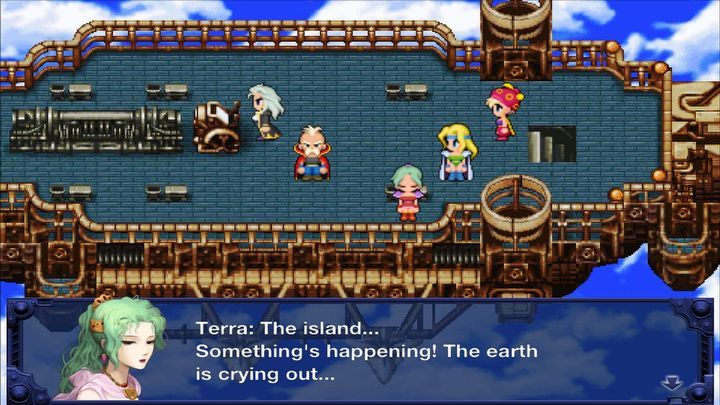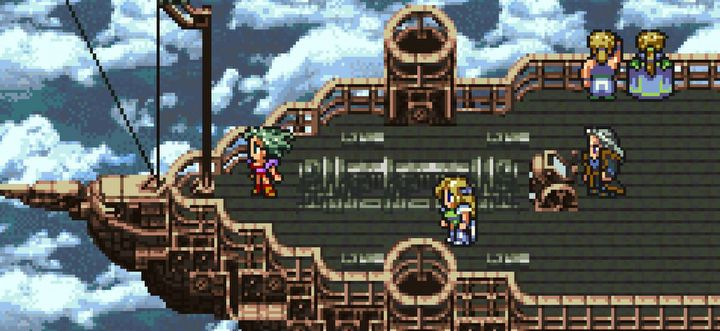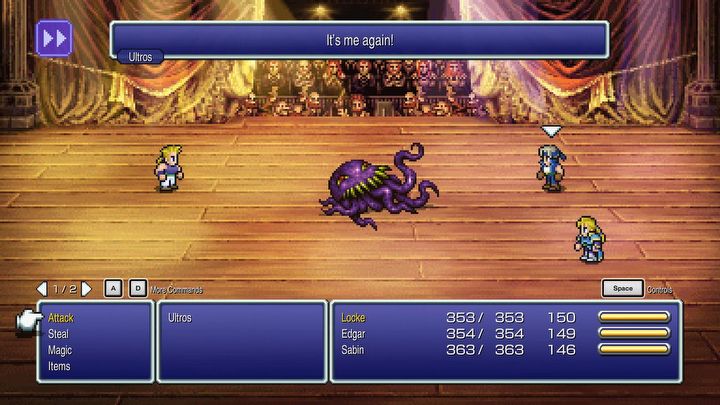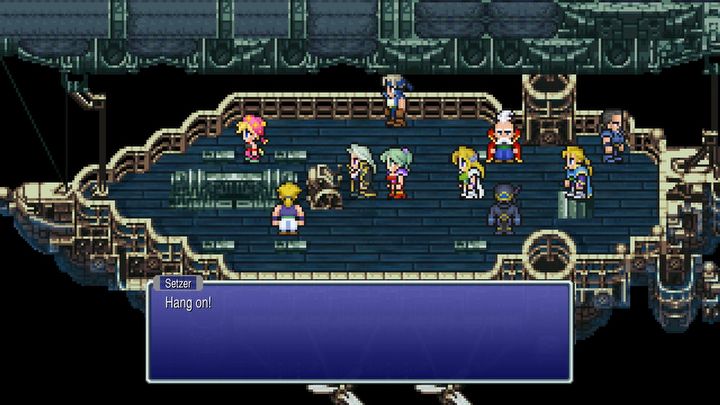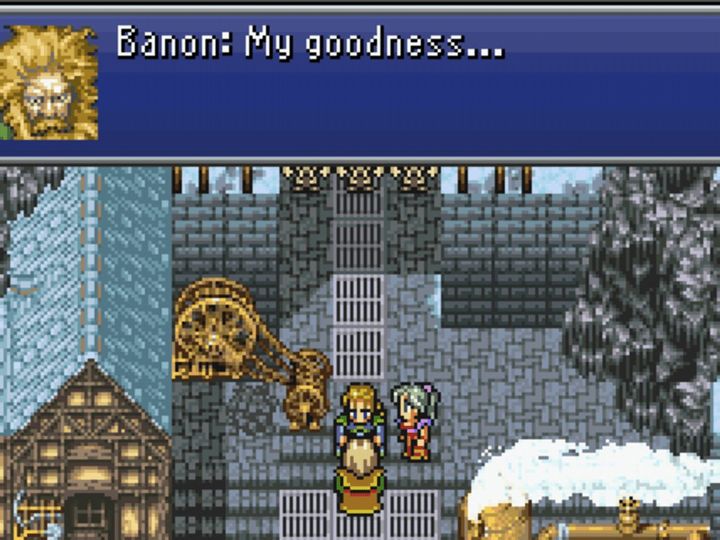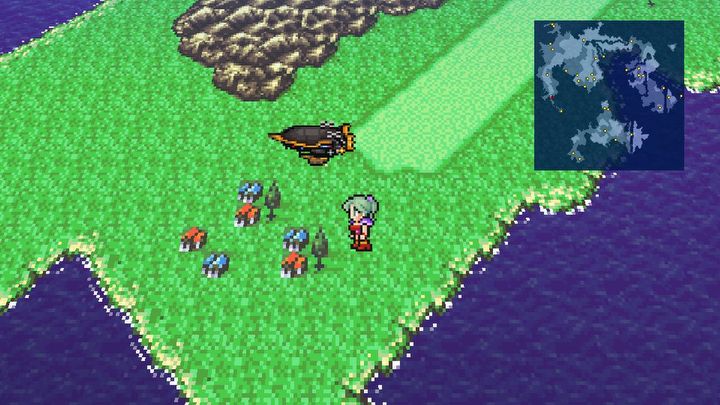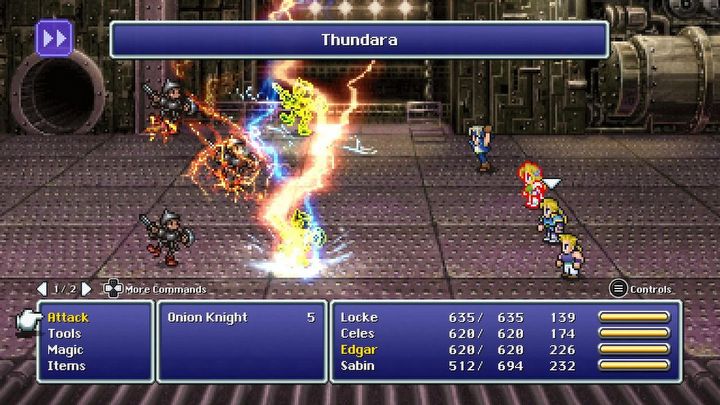Saving the World is So Boring, With One Exception - Final Fantasy 6!
Saving the world is exploited ad nauseam, especially in RPGs. Universal, but boring. Predictable enough to give yourself another game because you know what to expect. Fortunately, there have been some exceptions – and one was very, very special.
4
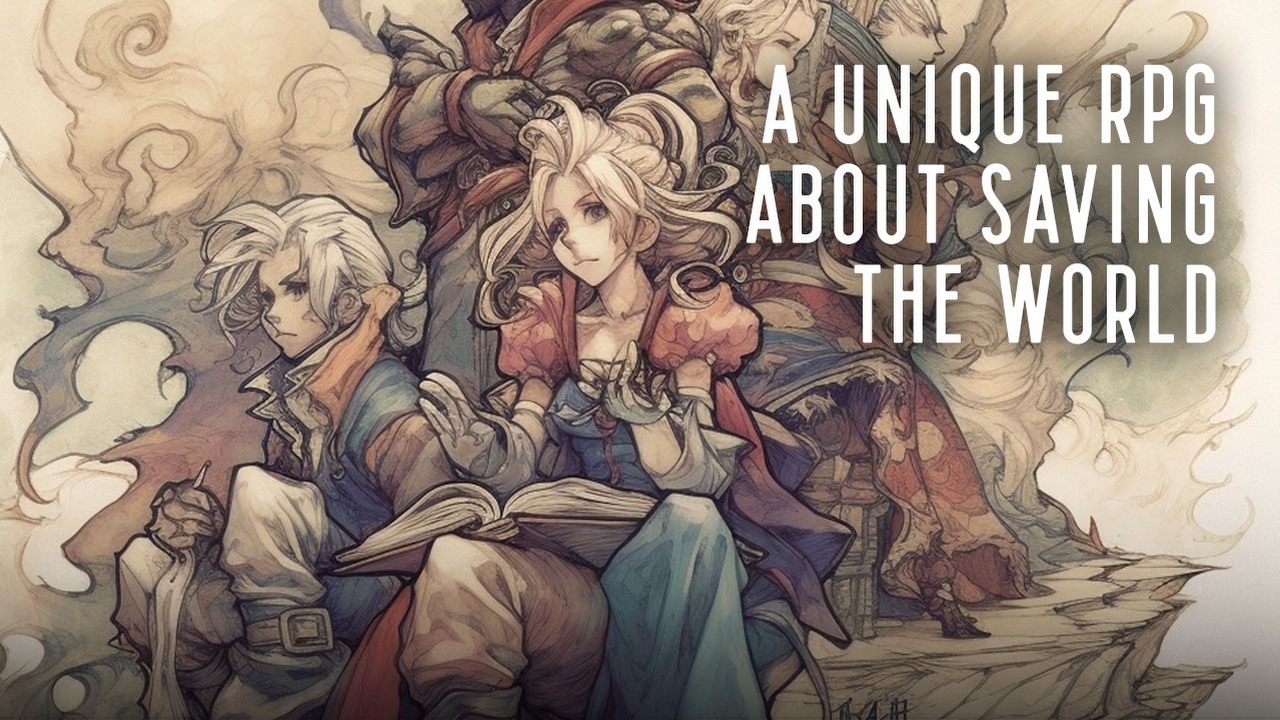
I don't know about you, but my main filter for selecting new RPGs to play is the question "Is it about saving the world?" If the answer is "Yes," I mostly skip them. The classics I grew up on, like the original Baldur's Gate and Baldur's Gate 2 or Planescape: Torment, were all about saving your own skin, even if it involved a cosmic scale of events. This is a much more interesting story flashpoint (and yes, I have said many times that this also applies to the BioWare classic) than the typical plot along the lines of "an evil is planning to destroy the world, a chosen one will save it." I don't like it, I got annoyed and bored by it. All kinds of games, from AAA, to indie and mobile, are making it trite. Action RPGs, classic RPGs, jRPGs and hack'n'slashes as well. How much is too much? The ubiquitous superhero games have further hackneyed the formula. Paradoxically, one of the few games that still get my love depite using this simple story pivot is the ancient jRPG, Final Fantasy VI. This game, however, proves that such a clichéd story formula can become a carrier of valuable content.
Songs we know (and are sick of)
You see, saving the world in a game is a bit like owning a Toyota. It's a gaming equivalent of driving a Prius. It's solid, simple and bland – but it works, takes you everywhere you need to get, and maintaining it shouldn't cost you many headaches. And that's pretty much how I view saving the world in video games. It evokes certain emotions, it can be intriguing, and it is easy to execute a moderately interesting character arc with it and convey something more meaningful. This encourages collecting powerful equipment and spending XP on raising your statistics, as the protagonist should naturally become more powerful. Nothing that blows socks off, but it does the job.
But a Prius does offer a few advantages, and the segment of compact cars it belongs to is already a very exciting place, where you can find some of the funnest cars out there. It's the same with the unfortunate "saving of the world" formula – it can act as a vehicle for strong emotions and really valuable subtext, providing a chance to watch intriguing characters in action. It can be great for experiencing something extraordinary, even if presented in quite classic aesthetics.
There have been a few such productions over the years: simple in assumptions, yet brilliant. The first thing that comes to my mind is the Mass Effect trilogy, well known to the modern generation. The more we learn about the story, the clearer the stakes become. And what's at stake is the existence of all advanced civilizations in the Galaxy. And that's nothing new, it feels even less subtle than the conflict in the original Star Wars trilogy. But before you realized that the first ME wasn't just a spy intrigue with a big secret in the background, you'd have completed at least half of the game. Secondly, the charisma of the members of your team was explosive; thirdly, the lore of the Reapers was as intriguing and creepy as Lovecraft (just like the idea of creating a human reaper – certified David Cronenberg stuff). Which means it is possible to make meaningful games about saving the world. And there are more examples.
Disco Elysium or Torment were two fantastic games that refused the idea of saving the world, and while these aren't as complex, they're surely not less compelling. Sometimes, they even have more firepower thanks to a simpler structure. There's a great prowess in a universal formula. It just depends on the enveloped in which we get it. What questions does the story address? What does all this saving of the world mean for the characters? What challenges does it pose, what does it say about the given universe, what's the conclusion? What lies that the characters live by are dispelled in the process? These are universal narrative tools that work for every culture. For some reason, they appear in Blake Snyder's Save the Cat! or John Truby's The Anatomy of Story, not to mention Joseph Campbell's The Hero with a Thousand Faces.
...and then, not really
The RPG that I can't get out of my head as I think about examples of stellar solutions to the save-the-world scheme is Final Fantasy VI. It's a game that decades ago has proven that the most hackneyed ideas can become carriers of timeless, universal and exhilarating stories – with the right commitment. And its stories will always resonate somewhere in the back of your head once you experience them.
Part six was supposed to be a farewell to the 16-bit generation, and you can really see that it's a final, thunderous "hooray!" The game squeezed everything out of the available technology. Exploration, interaction with the world, combat, character development, combing skills and professions – all the mechanics are fun even today. I wouldn't call the game's main systems clumsy. They are quite intuitive, and they work well. Mechanics are secondary in respect to the subject we're discussing here, but they fulfill a basic function – and just like almost thirty years ago, they don't interfere with experiencing the story.
What we’re interested in here, are the components. And it just so happens that Final Fantasy VI was a game assembled from the best components.
BEWARE OF "SLIGHT" FINAL FANTASY VI SPOILERS
The story begins with a simple myth, a fantasy war, and one "chosen" girl. And then things start to go haywire – it turns out that saving the world also allows for experiments with the form and a fresh approach.
Once upon a time, magic was not uncommon. However, there was a war of three gods, and the conflict ravaged the lands to such an extent that three particular beings were turned into stone statues. Centuries later, the Gestahl emperor discovered the potential of exploiting the remaining magical beings, the so-called espers. With their help, he created a powerful, militarized state where the sight of magic-powered power armors is not uncommon. The action is reminiscent of the Beast of War movie. We meet Terra, the first heroine, when the blue-haired girl enslaved by Gestahl's mind control pacifies the village with her squad. Everything is presented in a fairy-tale atmosphere, conventionally, and yet it's pretty heavy stuff.
You see, though most of the game we're accompanied by an atmosphere of adventure and a heroic-nostalgic soundtrack (outstanding, I recommend the symphonic arrangements; if Ennio Morricone composed fantasy soundtracks, they'd sound like this), there are really heavy, gloomy themes playing throughout the story. Downright brutal, or just everyday-Russian. War crimes, mind control, experiments on civilians, corruption of power, exploitation of conquered peoples, lies, manipulation, propaganda and then, even more war crimes. Don't let the sweet, two-dimensional graphics with an anime flair fool you. This is a story about some really serious and realistic topics. It's just a game brave enough to hide it all underneath a mantle of adventure.
It's not much lighter on a personal level either. Sure, it's about fighting, adventures, stopping the bad guys and meeting lofty goals, as well as discovering the mysteries of the world, but the team of Hironobu Sakaguchi (creator of the series and producer of FFVI) approached these ideas with a fresh mind. It was decided that every character in the team would be the main character of this story. This, in turn, was conducive to juggling the squad around (with a dozen characters in the team, we could control a maximum of four at a time). But most of all, there was a much deeper story behind every person that joined the group. There's trauma, betrayal, uncertainty, wounds. An old conflict, loneliness, depression, insecurity and guilt.
Of course, it's not Ingmar Bergman and these people also interacted quite cheerfully, in moments of downtime, we watched funny scenes, but that's the strength of a good adventure – it says more than meets the eye, you just can't be a snob fixated on "higher art" and use empathy to catch the draft. Furthermore, the effect was achieved with much simpler directing and less sophisticated dialogues than those used today (although...). After all, a lot of content had to be crammed into the SNES dialog box using quite a bulky font. But it worked. There were also the villains, a power-hungry emperor and his henchman, the demonic clown Kefka, who was basically the Joker as a military genius leading a fantasy army. The diabolical 16-bit laugh of this damned bastard will never be forgotten.
All these broken, complicated heroes and antagonists were then tied together inside a great story exactly with the simple trope of saving the world. We understood why Terra, Locke, Shadow, Celes and the rest were going to battle. Their motivations and personalities could develop in one journey because they had a clear purpose. The creators did not have to bend over backwards when conceptualizing them, but they went crazy with the implementation. They timed the main story and subplots so perfectly that every dramatic or comical scene had enough room to fully resonate.
Anyway, the charisma of this squadron of NPC hawks bursts out of the screen, just like in the case of games from BioWare, Obsidian or CDPR. Everyone will find someone to root for. My favorite characters were Locke, Celes, Shadow and Setzer, but the others are also fascinating (properly developed and great in battle). Celes and Locke's romance is one of my favorite RPG love stories, in turn – regardless of which era or country of origin you opt for. Celes herself is one of the best-written female characters in the history of the genre. And the same can be said for most of the team, including Terra. But back to the subject – their complex personalities complement each other so well thanks to the uncomplicated nature of their predicament. The thing is that this simple idea was then fleshed out with mastery and passion of the creators, along with a hefty does of great intuition.
Some fans analyzing the story in Final Fantasy VI prove that it is largely a tale about rising from depression and falling into it again, about adapting and repairing (which is probably best emphasized by this scene – it's a cure for all evils, a masterpiece of directing, using flashbacks, tone, timing, pacing, or, finally, music – it carries a purifying quality).
Indeed, the script uses such tropes, which is particularly clear in case of the legendary plot twist that happens in the "fake ending," which ultimately opens up a whole new stage of the game. I won't tell you what it is about – just go and experience it. FFVI remains a small, great work of art. It's a complete and fulfilling game that you can play on so many platforms that you basically have no excuse. Go and save the world again. This time, it will be worth it.
4

Author: Hubert Sosnowski
He joined GRYOnline.pl in 2017, as an author of texts about games and movies. Learned how to write articles while working for the Dzika Banda portal. His texts were published on kawerna.pl, film.onet.pl, zwierciadlo.pl, and in the Polish Playboy. Has published stories in the monthly Science Fiction, Fantasy, and Horror magazine, as well as in the first volume of the Antologii Wolsung. Lives for "middle cinema" and meaty entertainment, but he won't despise any experiment or Fast and Furious. In games, looks for a good story. Loves Baldur's Gate 2, but when he sees Unreal Tournament, Doom, or a good race game, the inner child wakes up. In love with sheds and thrash metal. Since 2012, has been playing and creating live action role-playing, both within the framework of the Bialystok Larp Club Zywia, and commercial ventures in the style of Witcher School.
Latest News
- Butcher's Summit, an impressive free diselpunk FPS, has been released
- Free FPS on Half Life engine gets big update
- On February 3, gaming history could change forever. Red Dead Redemption 2 one step away from a major achievement
- This is not the RPG you expected. Crimson Desert abandons the key elements of the genre, going for original solutions
- Nintendo may unexpectedly beat Sony. State of Play is not to be the only game show awaiting players in February
